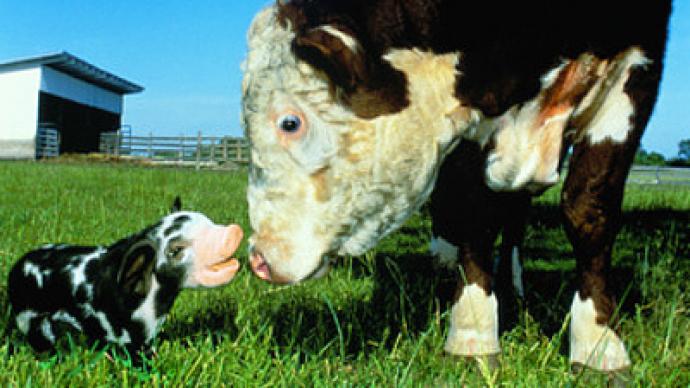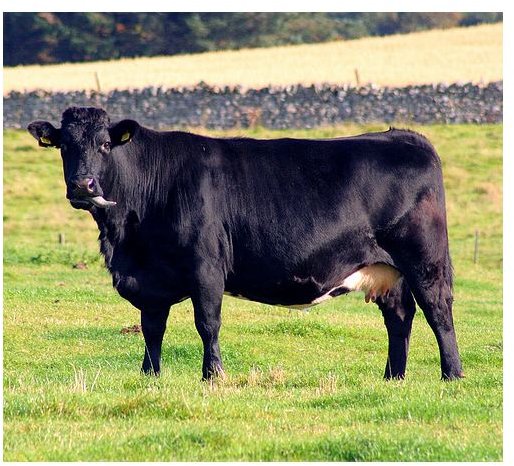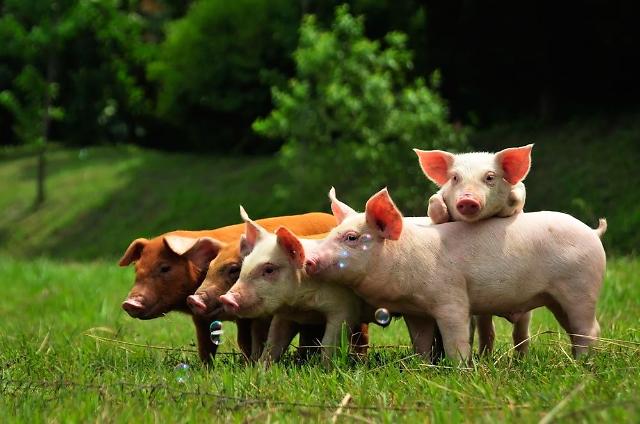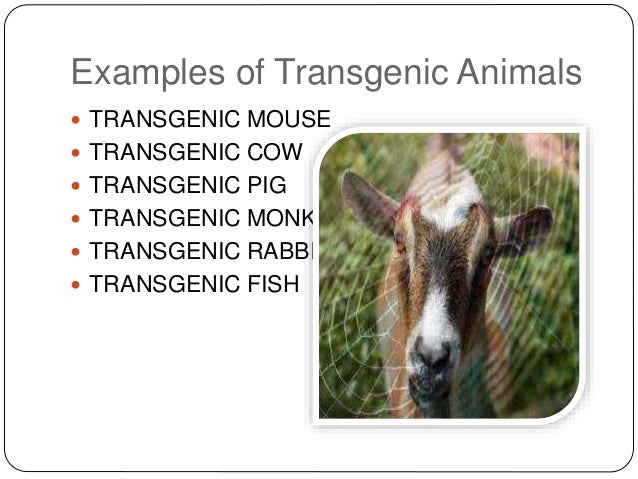Niemann h, kues w, carnwath jw (2005) transgenic farm animals: The first transgenic livestock species were reported in 1985.

Transgenic cow research branded a 'disaster' Radio New
(1)national diagnostics centre/bioresearch ireland, university college, galway.

Transgenic farm animals. Biopharming in transgenic farm animals. Even in the face of these practical hindrances, some may be pressured by administrators to embrace this new technology. The two most common reasons are:
The first transgenic mouse was created in 1985, followed a few years later by genetically modified rabbits, pigs, sheep, and cattle. Since then microinjection of foreign dna into pronuclei of zygotes has been the method of choice. Typical agricultural applications include improved carcass composition, lactational performance and wool production, as well as
The first successful transgenic animal was a mouse.6 a few years later, it was followed by rabbits, pigs, sheep, and cattle.8,14,15,16 why are these animals being produced? Transgenic farm animals are important in human medicine as sources of biologically active proteins, as donors in xenotransplantation (xenografts from transgenic pig) and for research in cell and gene therapy. Until recently, pronuclear microinjection of deoxyribonucleic acid (dna) was the standard method for producing transgenic animals.
Typical agricultural application include improved carcass composition, lactation This technique is now being replaced by more efficient protocols based on somatic nucleartransferthat also permit targeted genetic modifications. We recently developed a transgenic procedure that combined the techniques of goat oocyte in vitro maturation (ivm), in vitro fertilization (ivf), microinjection, preimplantation selection of the transgenic embryos with nested pcr and transferring the transgenic embryos into the recipient goat uterus to produce transgenic goats.
Conventional science to improve muscle and meat parameters has involved breeding strategies, such as selection of dominant traits or selection of preferred traits by cross breeding, and the use of endogenous and exogenous hormones. As powerful as the transgenic animal model system is, currently there are limits to the kinds of agricultural questions that can be addressed. 2005 transgenic zebrafishes expressing different fluorescent proteins.
The difficulty in obtaining these. Potential role of transgenic animals in agriculture at the moment, the fda is nearing approval for salmon which expresses the growth hormone for commercial use (aquadvantage) (according to the findings, it is safe for humans and the environment) [11, 102]. Current applications of gene transfer in farm animals include the improvement of product quality and quantity, disease resistance, the production of valuable proteins in the mammary gland or other organs, the genetic modification of pigs for xenotransplantation and the generation of new animal models in cases where rodent models are not sufficient for studying.
Lentiviral vectors and small interfering ribonucleic. Gene transfer is a relatively rapid way of altering the genome of domestic livestock. The majority of transgenic animals produced so far are mice, the animal that pioneered the technology.
But more complex proteins, such as blood clotting factors and monoclonal antibodies, cannot be produced in this manner because they have complex folding patterns. Gannon f(1), powell r, barry t, mcevoy tg, sreenan jm. Transgenic farm animals are also being explored as a means to produce large quantities of complex human proteins for the treatment of human disease.
It is now being replaced by more efficient protocols based on somatic nuclear transfer that also permit targeted genetic modifications. Milestones (live offspring) in transgenesis and somatic cloning in farm animals modified from niemann et al. Transgenic animals are useful as disease models and.
Transgenic farm animals could be hosts of choice if the levels of expression obtained are economical. Transgenic domestic animals remain infrequently used as models for biochemical, biomedical or pharmaceutical studies. Transgenic animals have numerous applications in agriculture, medicine, and industry.
The transgenic technology is one of an important tool to meet the future challenges for increased animal’s production. Transgenic farm animals are important in human medicine as sources of biologically active proteins, as donors in xenotransplantation, and for research in cell and gene therapy. The economic impact in the case of transgenic salmon is associated with an almost twofold.
Development of transgenic farm animals will allow more flexibility in direct genetic manipulation of livestock. Rationales for the genetic engineering of farm animals include improving the nutritional value. Transgenic farm animal studies are major logistical undertakings.
For decades simple recombinant proteins, such as insulin and human growth hormone, have been produced in genetically engineered bacteria and yeast. Creation of transgenic farm animals. The emergence of transgenic technology has widened the scope of development in case of farm animals and the advent of new molecular biology techniques has paved way by giving a new dimension to animal breeding.
Transgenic animals are animals which have been genetically transformed by splicing and inserting foreign animal or human genes into their chromosomes. Improved carcass composition, lactational performance, wool References robl jm, wang z, kasinathan p, kuroiwa y (2007) transgenic animal production and animal biotechnology.
In addition, the transgenic animal may be uniquely suited for production of large or multi subunit proteins which need cofactors for their activity.

Biotech’s Bizarre World 7 Modified Animals

FDA OKs Use Of Transgenic Chicken For Drug Production

Production of transgenic farm animals

Application of Transgenic Animals in Livestock production

Applications of Transgenic Animals YouTube

Production of transgenic farm animals
“Transgenic” Cows that Produce Human Milk GMOs Revealed

transgenicanimals Blueberries Consulting

How to milk a rabbit and why — RT World News

CRISPR Edited Transgenic Animals

Production of transgenic farm animals

Transgenic Animals and their Applications in Medicine

Animales transgénicos un mal no necesario

Transgenic animals are still proving tough to swallow
A group of transgenic sheep CSIRO Science Image CSIRO

Scientists produce transgenic pig model for Alzheimer's

